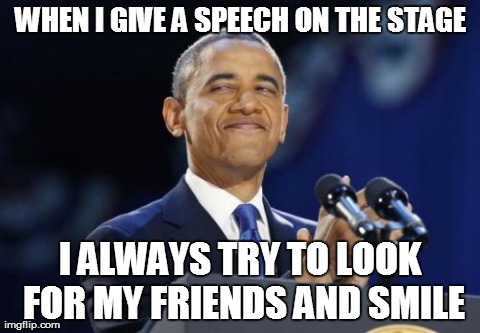Hi Delegates!
The conference is coming up soon! Can you believe that we only have 20 more days until BMUN 66!
For some of you, it will be your first time coming to a MUN conference, for others it will be your 3rd or 4th time coming to BMUN. For me, this will be my 7th and last year of MUN (sad face)
I remember for my first MUN conference, I represented Equatorial Guinea in the Security Council on the topic of blood diamond trafficking and the Kimberly Process. I blanked out, stuttered through my comments and questions and couldn't muster enough confidence to get on the podium and make my speech.

1. Rules of Procedure: Any MUN conference follows certain Rules of Procedure that describe how and when debate on the topic will happen. These Rules of Procedure are important to understand, as without them you will feel confused and lost. It is always a good idea to read and understand the Rules of Procedure before attending the conference, but do not be alarmed if you do not understand all of them immediately! Over the course of the committee sessions, it will become much easier to follow and understand. You will also have all the motions and points on the back of your conference placard!
2. Research: At any MUN conference you will be generally be assigned to represent a certain country in a specific committee to discuss the topic at hand. You should read up on the topic that is to be discussed, and what role your country has to play in the situation. One really good resource if to check out the Foreign Affairs website your country has, usually they will have records of diplomatic speeches that could serve as a really good way for you to gauge your country's stance on multiple issues or towards different nations.
3. Speaking & Diplomacy: First of all, remember that your speech is only one part of your MUN experience and our grading. What I would recommend is always to have a note card with 3 points of your speech listed and your 1-2 examples for each point.
Additionally, something I always recommend is to slow down your delivery, you'll be surprised how fast you start speaking or how you start speeding up once you get up on the podium.
Additionally, something I always recommend is to slow down your delivery, you'll be surprised how fast you start speaking or how you start speeding up once you get up on the podium.
Finally, the most important thing is to have fun! MUN conferences can be wonderfully beneficial for you. The can help you improve your social and leadership skills, they can help you meet new people and make new friends (I met two of my current closest friends during MUN conferences),and they can also help you develop your reading, writing, and analytical thinking skills. It seems unrealistic that one humble extracurricular could do so much for you, but it is true. I can very confidently say that I would not have half the confidence or skills that I currently possess were it not for Model UN conferences, and I hope the same will become true for you in the years to come!
Good Luck!
Comments
Post a Comment